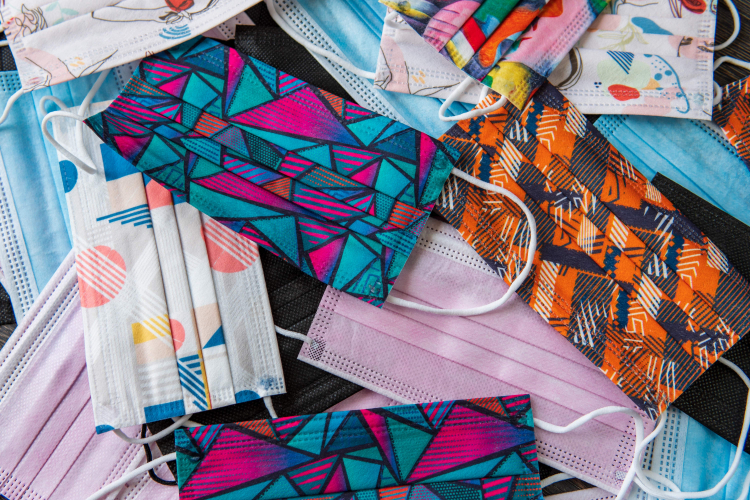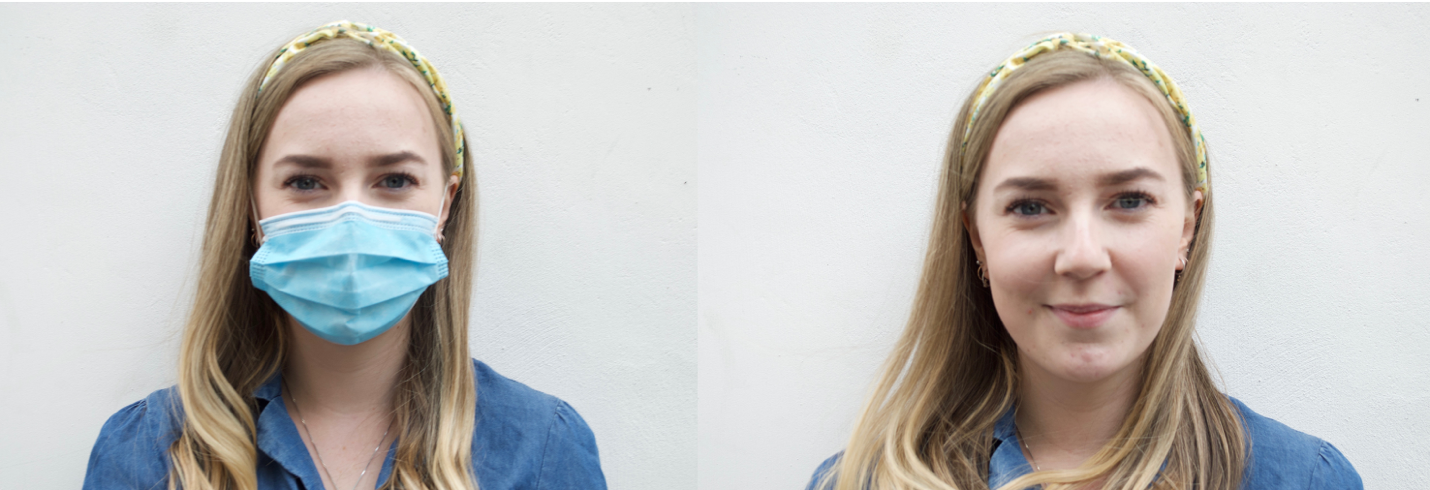An Everyday "Mask"erade

Meeting people face to face has a new meaning; it might as well be called meeting mask to mask. While the masks have become ubiquitous to our new normal, there is one caveat for visiting or incoming students: we are meeting each other for the first time. It's one thing to be meeting your peers after a long time, and it's entirely another experience to meet most of your peers and classmates from their foreheads and a pair of eyes.
For people who are better with faces than names, this situation proves to be challenging as was the case for me. I was walking on campus, and two of my professors look similar: wear glasses, casual stature, and have a bald head, so I waved hello to them while unknowingly and very confidently calling him the wrong name. He laughed while I was internally facepalming my forehead. However, I am not alone in these cases of mistaken identities. "It is hard, there have been a few times where I will bump into the person not realizing I have already met them, " shared visiting student, Simon Solberg-Arntsen, "it can get confusing," he added.
Photo credit: Sukhi Borse
Other students, however, find that it has forced them to engage more with their interactions and focus on being present in the moment. Visiting senior, Margit Sandvik said, "it's interesting, I am a person who remembers faces more, so now I just fixate on how everyone's eyes are distinct." She isn't the only one to be focused on eyes as they are likely the most expressive part of our unmasked face. "It's interesting, now with masks, to see how much emotion people place in their eyes," shared visiting student Sarah Pinkerton. Masks, however, are making it more difficult for our brains to recognize faces. "If anything, I have gotten better at remembering people, but every single time someone takes off their mask... then I'm surprised," she added.
Enter the "catfish" effect...
You know what I'm talking about; when you meet someone for the first time in a mask, and then you have created an image in your head of what this person looks like only to be completely surprised at how wrong your brain filled in the blank. "The expectations of my assumptions are just never met," said Pinkerton. "I get it wrong every single time," she added. We test our brains every day in this process, and we never get any better at solving the puzzle. "You would think after a year, we would have adjusted to this by now, but the shock factor remains the same," commented Sandvik.
Photo credit: Sukhi Borse
There are also notable perks to wearing the mask--besides the fact that it is protecting us.
"We don't have to worry about coffee breath," stated Solberg-Arntsen. It's true, while we could smell our breath; we tend to be more socially conscious about it, but the mask provides a barrier in a way. For others, it has allowed them to feel like they can focus on things besides their appearance. Margit enjoys the fact that she doesn't feel the need to put as much makeup on, so she feels like she has become more productive. " I realized I sleep in more now because I don't have as long of a morning routine as I used to, " she shared with a smile on her face-- a smile I saw by looking at her eyes.
This pandemic has shifted the way we approach situations and has been difficult, but I can gladly say that there have been some pretty comical situations that have come from the experience which have made the hard parts at least a little more enjoyable.









